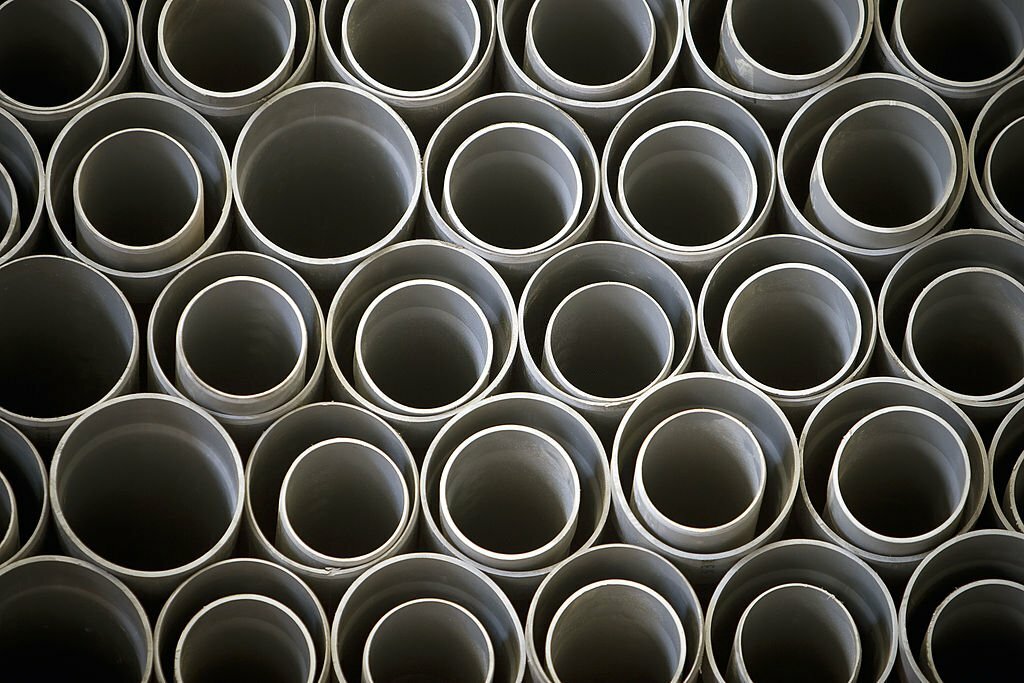It is essential to select the appropriate drainage pipe type when building a long-lasting and effective drainage system. People often use folded pipes and PVC (polyvinyl chloride) as two of the most common options on the market. Perforated pipes are furthermore a special option for particular drainage requirements. In this comprehensive analysis, we will discuss the characteristics, advantages, and applications of PVC, folded, and perforated drainage pipes, with a special focus on Schedule 40 pipes.
PVC Pipes:
PVC pipes have gained widespread popularity in drainage systems due to their durability, versatility, and cost-effectiveness. Users commonly prefer Schedule 40 PVC pipes, particularly recognizing them for their high-pressure rating and resistance to decay. Manufacturers produce these pipes from rigid PVC material, ensuring strength and durability.
Advantages of Schedule 40 PVC Pipes:
1. Strength and Durability:
Schedule 40 pipes are renowned for their strength, which is important for underground applications. Additionally, they can withstand high pressure and are resistant to breakage and erosion, ensuring a long lifespan for the drainage system.
2. Corrosion Resistance:
PVC pipes do not deteriorate or rust, even when exposed to harsh environmental conditions. This makes them an ideal choice for drainage systems, especially in areas with varying soil compositions.
3. Smooth Interior Surface:
The smooth interior surface of Schedule 40 pipes facilitates efficient water flow. Unlike pipes with rough interiors, PVC pipes minimize the risk of clogs and residue buildup, ensuring a consistent and reliable drainage system.
4. Chemical Resistance:
PVC pipes are resistant to a wide range of chemicals, making them suitable for drainage systems where exposure to different substances is a concern. However, this chemical resistance contributes to the longevity of the pipes.
Applications of Schedule 40 PVC Pipes:
1. Residential Drainage:
People commonly use Schedule 40 PVC pipes in residential drainage systems for their durability and ease of installation. Moreover, they are suitable for transporting wastewater from sinks, toilets, and showers to the main sewerage lines.
2. Agricultural Drainage:
In agricultural settings, where efficient water management is required, Schedule 40 PVC pipes are utilized for drainage purposes. In addition, they can handle the demands of agricultural runoff and irrigation systems.
3. Industrial Applications:
The strength and chemical resistance of Schedule 40 pipes make them suitable for various industrial applications, including the transport of industrial wastewater.
Corrugated Pipes:
Corrugated pipes are unique because of their ability to adapt to changes in the environment naturally. They are usually made of HDPE. The corrugated design adds strength to the pipes while allowing flexibility.
Advantages of Corrugated Pipes:
1. Flexibility and Versatility:
Due to their flexibility, corrugated pipes are appropriate for locations in which stiff pipes might not be feasible. They can adjust to the organic shapes of the ground thanks to their adaptability.
2. Easy Installation:
Corrugated pipes are lightweight, which facilitates handling and installation. Labor and equipment costs may decrease as a result of this.
3. Chemicals Resistance and Abrasion:
Corrugated pipes, especially those made from HDPE, are resistant to chemicals and abrasion. This makes them a reliable choice for drainage systems in areas where exposure to acidic substances is a concern.
Applications of Corrugated Pipes:
1. Storm water Management:
Storm water management systems commonly use corrugated pipes to efficiently transport rainwater away from residential and commercial areas, preventing flooding.
2. Agricultural Drainage:
The flexibility of corrugated pipes makes them suitable for agricultural drainage systems, especially in fields where a rigid pipe may be challenging to install.
3. Foundation Drainage:
Foundation drainage systems employ corrugated pipes to redirect water away from the building’s foundation, preventing potential damage.
Perforated Pipes:
Perforated pipes are designed with small holes or slits along their length, allowing water to enter the pipe. These pipes are particularly useful in managing excess water in specific applications.
Advantages of Perforated Pipes:
1. Effective Water Infiltration:
The potential of perforated pipes to allow water to enter the pipe through the perforations is their principal advantage. Furthermore, this qualifies them for applications requiring water infiltration.
2. Prevention of Waterlogging:
Perforated pipes are commonly used in areas inclined to waterlogging, such as agricultural fields. They help in draining excess water from the soil, preventing damage to crops.
Applications of Perforated Pipes:
1. Agricultural Drainage:
Perforated pipes are extensively used in agricultural drainage systems to manage excess water in fields, in addition to preventing soil erosion and promoting healthy crop growth.
2. Foundation Drainage:
In construction, perforated pipes are often used in conjunction with gravel as part of a foundation drainage system, ensuring that water is efficiently directed away from the building’s foundation.
3. Maintaining Wall Drainage:
Perforated pipes play an important role in the drainage behind retaining walls, preventing the buildup of water pressure and potential wall failure.
Conclusion:
The decision between PVC, corrugated, and perforated drainage pipes is based on the particular requirements of the project. Schedule 40 pipes from Adamjee DuraBuilt are excellent for a variety of applications because of their strength, resilience to chemicals, and durability. Corrugated pipes, with their flexibility and ease of installation, are ideal for stormwater management and agricultural drainage. However, Perforated pipes, designed for effective water infiltration, find applications in scenarios where preventing water logging is essential.
Ultimately, a comprehensive analysis of the project requirements, environmental factors, and the desired outcomes will guide the selection of the most appropriate drainage pipe. Additionally, each type of pipe has its unique advantages, and understanding this differentiation is vital for the successful implementation of an efficient and reliable drainage system.
Visit here for more informative blogs
